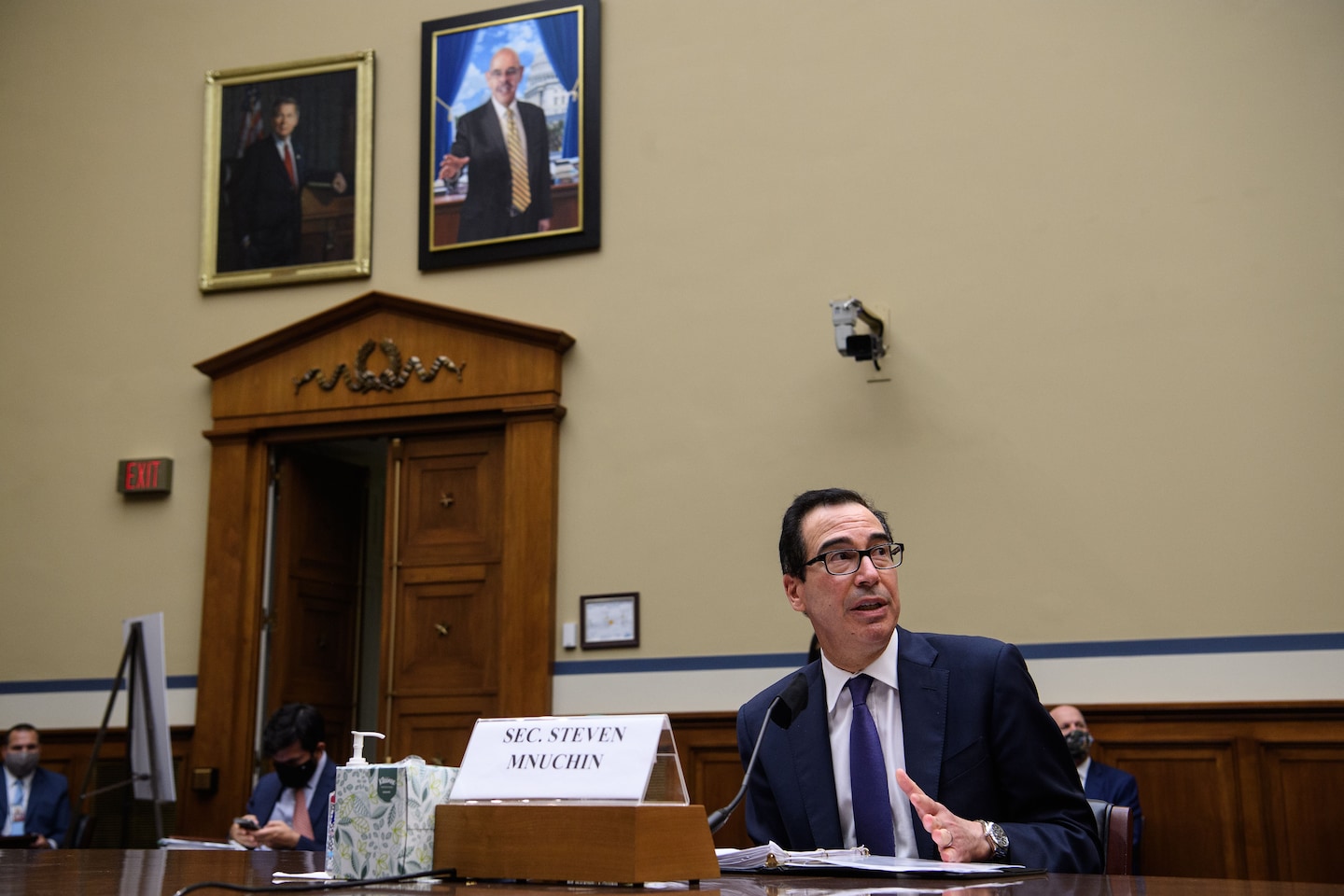Mnuchin says Trump administration, Pelosi have agreed on plan to avoid government shutdown Oct. 1

Mnuchin said his expectation is that this so-called “continuing resolution” would extend government funding into December — although the date has not yet been agreed on.
Without action by Congress, agency funding would expire at midnight Sept. 30, and the government would begin to shut down. Mnuchin’s comments confirmed reporting from The Washington Post and other outlets on agreement for a stopgap spending bill to avoid this outcome.
Mnuchin’s comments appear to suggest that the White House is not girding for a clash over this spending deadline, though White House officials have in the past tried to negotiate deals with Democrats in Congress, only to have President Trump announce that he is opposed at the last moment.
A spending bill into December would allow lawmakers to return to the Capitol for a “lame-duck” session following the election and complete spending legislation for the 2021 fiscal year that starts Oct. 1.
Short-term spending bills have become routine for Congress in recent years as lawmakers have failed to reach agreement in a timely fashion on the 12 annual must-pass spending bills that fund government agencies such as the Pentagon, the Education Department and the Department of Health and Human Services. This so-called “discretionary spending” accounts for about one-third of the overall federal budget, while programs such as Medicare, Medicaid and Social Security that continue automatically from year to year make up the rest.
Pelosi’s spokesman, Drew Hammill, confirmed earlier this past week that Pelosi supports passage of a so-called “clean CR,” meaning a government funding bill without extraneous legislation attached.
“The good news is we’ve agreed on a clean CR, and I hope by the end of the week, we can begin moving forward with that, because that’s important to the American people,” Mnuchin said.
“The most important thing is to make sure at the end of the month, we don’t shut down the government and we get something past the election,” he said.
Talks on additional coronavirus economic relief legislation broke down in August and have remained stalled. Lawmakers will return to the Capitol on Tuesday, and leaders in both parties say they hope to reach agreement on a new coronavirus relief bill.
But they remain far apart, and it’s unclear whether a deal will be possible. Democrats are unwilling to agree to legislation that spends less than $2 trillion, while Republicans say that figure is too high.
Senate GOP leaders have been hoping to try to advance a slimmed-down bill costing about $500 billion, but they’ve struggled to reach agreement even on that. The latest hang-up involves a push by Sen. Ted Cruz (R-Tex.) for a school choice provision opposed by some fellow Republicans.
Sen. John Barrasso (R-Wyo.), a member of the Senate GOP leadership, said Sunday that Senate Republicans anticipate opposition from Pelosi and Senate Minority Leader Charles E. Schumer (D-N.Y.) to their emerging bill.
“We have a targeted package that the Republicans want to put forward to help people get back to work,” Barrasso said on Fox News’s “Sunday Morning Futures.”
“There’s paycheck protection money in there for our small businesses to continue. I expect Chuck Schumer and Nancy Pelosi to block that,” Barrasso said.






